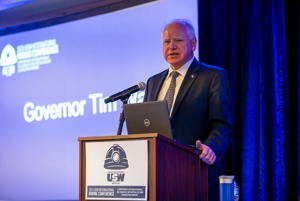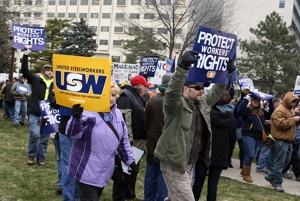The Minimum Wage is Not a Partisan Issue
The minimum wage should not be a partisan issue, rather it should be viewed as a measure designed to help the middle class. Contrary to the standard bromides that it will either cost jobs and that only teenagers earn the minimum wage, the minimum wage actually has positive welfare benefits. First of all, the data on job loss is ambiguous at best. Older studies have noted that increases in the minimum wage result in lower employment studies among teenagers, but they also note that this is less so among adults. More recent studies actually show that there really have been no employment consequences due to recent increases in the minimum wage. Second of all, most minimum wage earners are not teenagers, but are adults with children.
Core issues in the minimum wage tend to be obscured by a singular focus on only those earning the statutory minimum wage. We then lose sight of the fact that less important is the minimum wage itself, but what it represents. That is, it is a reference point for the low wage labor market. This is a critical point because the discussion should be on the effective minimum wage population – those earning in wage ranges around the minimum wage. This was the basis for the CBO concluding in its report a couple of months ago that at least 16 million Americans would get pay raises.
The CBO, however, most likely understated the extent to which the minimum wage would benefit the economy. Data from the Current Population Survey from 1962 to 2008 show visible benefits when income ranges starting with the statutory minimum wage are created. This data showed that when 10 such intervals were created, beginning with the minimum wage in each year, and ranging 25 percent, these 10 intervals actually constituted 70 percent of the labor market by 2008. In each year that the minimum wage increased, so too did the median wages in each of those intervals. And in years when there was no increase, median wages in each interval remained flat.
That the median wages for up to 70 percent of the labor market were increasing only suggests that the minimum wage is really about the middle class. Surely, most of the political opposition to the minimum wage has to stem from the fact that employers will feel compelled to give other workers pay increases. Otherwise, why would an issue that, according to most conservatives, only affects a fraction of the labor market, elicit such a firestorm of opposition? Are we really to believe that they care about employment? If employment were really the concern, then why don’t the same voices react strongly every time the Fed raises interest rates? That too cost jobs.
Arguments about employment consequences are nothing more than cover for the real concern, which is employers may be compelled to give others pay raises too. And yet, it ought to be evident to most that workers earning more will be of greater benefit to the economy because their enhanced purchasing power enables them to demand more goods and services in the aggregate. Demand for goods and services is what drives the economy; not the creation of low-wage jobs where workers cannot support themselves and, because they cannot, society is forced to subsidize their low wages through various assistance programs and income supports.
By focusing on the same minimum wage bromides which have drawn partisan battle lines, the Republicans have only handed the Democrats an issue that they can use in the 2014 midterm elections. And yet, if the Democrats don’t move away from their traditional presentation of the minimum wage as an anti-poverty issue and begin to couch it as a middle class issue, they too will miss an opportunity. The minimum wage really should not be a partisan issue, rather it should be about shoring up the middle class and doing what is right for the economy.
By clicking Sign Up you're confirming that you agree with our Terms and Conditions.
Related Blogs
Ready to make a difference?
Are you and your coworkers ready to negotiate together for bigger paychecks, stronger benefits and better lives?

